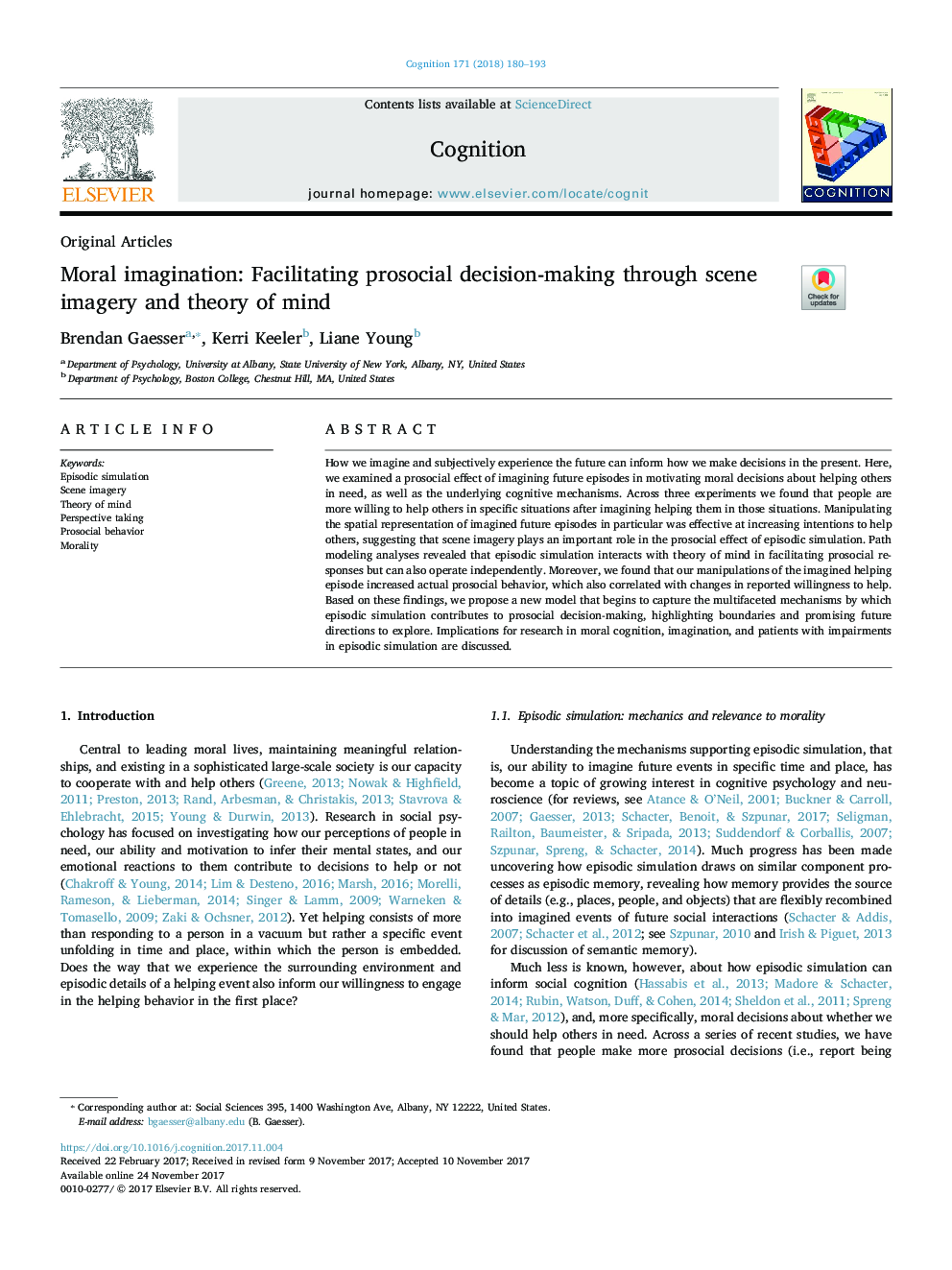| Article ID | Journal | Published Year | Pages | File Type |
|---|---|---|---|---|
| 7285638 | Cognition | 2018 | 14 Pages |
Abstract
How we imagine and subjectively experience the future can inform how we make decisions in the present. Here, we examined a prosocial effect of imagining future episodes in motivating moral decisions about helping others in need, as well as the underlying cognitive mechanisms. Across three experiments we found that people are more willing to help others in specific situations after imagining helping them in those situations. Manipulating the spatial representation of imagined future episodes in particular was effective at increasing intentions to help others, suggesting that scene imagery plays an important role in the prosocial effect of episodic simulation. Path modeling analyses revealed that episodic simulation interacts with theory of mind in facilitating prosocial responses but can also operate independently. Moreover, we found that our manipulations of the imagined helping episode increased actual prosocial behavior, which also correlated with changes in reported willingness to help. Based on these findings, we propose a new model that begins to capture the multifaceted mechanisms by which episodic simulation contributes to prosocial decision-making, highlighting boundaries and promising future directions to explore. Implications for research in moral cognition, imagination, and patients with impairments in episodic simulation are discussed.
Related Topics
Life Sciences
Neuroscience
Cognitive Neuroscience
Authors
Brendan Gaesser, Kerri Keeler, Liane Young,
